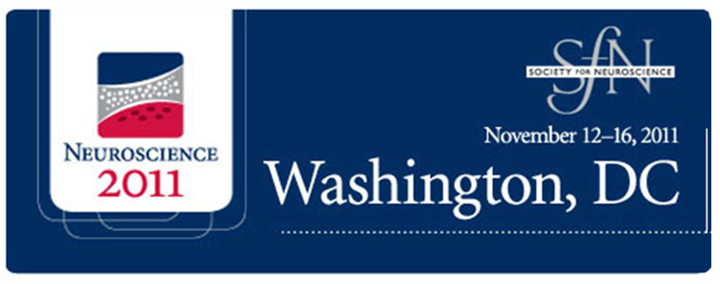In This Section
- Home
- Staff Profiles & Phone Book
- About the Department
- Welcome from Head of Department of Anatomy and Neuroscience
- A History of the Department
- A history of the Department; The early years to the 1980s
- A history of the Department; The move from the Windle Building to BSI and WGB
- UCC Professors of Anatomy and Heads of Department
- The development of the UCC HUB
- Current students, recent research graduates and awards
- Useful Links
- Study Anatomy
- Study Neuroscience
- Research
- Neural circuitry underlying Neuropsychiatric and Neurological Disorders 2026
- Neurogastroenterology 2026
- Developmental Neuroscience and Regeneration 2026
- Neurodegeneration 2026
- Neuroinflammation 2026
- Neuroprotection and Therapeutics 2026
- Neuroproteomics and Molecular Psychiatry 2026
- Anatomy Education Research 2026
- Research Facilities 2026
- Postgraduate Research Programmes 2026
- UCC Anatomical Donations
- Biosciences Imaging Centre
- BSc Medical and Health Sciences
- News & Events
- News Archive 2024
- News Archive 2023
- News Archive 2022
- News Archive 2021
- News Archive 2020
- News Archive 2019
- News Archive 2018
- News archive 2017
- News Archive 2016
- News Archive2015
- News Archive 2014
- News Archive 2013
- News Archive 2012
- News Archive 2011
- BRAIN AWARENESS WEEK 2023
- Department Events and Conferences
- Seminar series 2019_2020
- photo galleries
- Narrowing the void Conference 2023
- Photos of BSc Medical and Health Sciences Mentoring launch 2022
- International Women's Day 2023
- 2023 BRIGHT FUTURES - Celebrating our researchers
- 2023 UCC Futures - Future Ageing & Brain Sciences
- Recent Graduations July 2023
- Anatomy and Neuroscience Top 100 Anatomy Physiology 2023
- BRAIN AWARENESS WEEK 2023 FUN AND GAMES EVENT
- Medical and Health Sciences First year class 2023
- 2023 Brain Awareness week Scientific discussion photo gallery
- World Anatomy Day 2023
- BSc MHS MENTORING PROGRAMME 2023
- BSc Medical and Health Sciences Graduation 2023
- BSc Neuroscience Graduation Photo Gallery 2023
- Dr Kathy Quane Nov 2023
- THANKSGIVING PHOTOS 2012
- Photo Gallery: Society of Translational Medicine Careers Fair 2023
- Photo Gallery:2023 TRAIN AWARDS
- Photo Gallery:2024 Creative Week St Joseph's NS
- Photo Gallery: Department of Anatomy and Neuroscience Thanksgiving Service 2024
- Photo Gallery: Professor Aideen Sullivan farewell party
- Photo Gallery: Irish Pain Society Annual Scientific Meeting Cork 2023
- Photo Gallery: 2024 Medical and Health Sciences Graduation
- Photo Gallery: Medical and Health Sciences Meet and Greet 2024
- Photo Gallery: 2024 BSC NEUROSCIENCE Graduation
- Photo Gallery: 2025 INTERNATIONAL WOMEN'S DAY
- Photo Gallery: 2025 BSc Neuroscience class and staff
- Photo Gallery: 2025 BRAIN CONNECTIONS
- BSc Neuroscience Graduation Photo Gallery 2025
- World Anatomy Day 2025
- UCC Learning and Teaching Showcase 2025
- MSc Human Anatomy Graduation Photo Gallery 2025
- Narrowing the Void Conference 2023
- Department of Anatomy and Neuroscience Contact Us
Alleviating Chronic Stress 16.11.2011

16.11.2011
Neuroscientists at University College Cork (UCC) have shown that the consumption of a high-fat diet can protect from certain adverse effects of chronic stress on psychological well-being. The results of the study are presented at the Annual Society for Neuroscience Meeting in Washington DC today (November 16th 2011) and have recently been published in the journal Neuroscience. The authors are Beate Finger (Food for Health Ireland), Ted Dinan (Professor of Psychiatry) and John F. Cryan (Professor of Anatomy), UCC.
In today’s changing society, daily life has become more stressful; Unemployment, recession, negative equity, cutbacks, hospitals in crises, insecurity all contribute to constant psychosocial stress that can negatively affects our work and private life. As a result, many people suffer from stress-related disorders such as anxiety and depression.
Previous research has shown that humans when exposed to stress change their eating habits from a healthy to a high fat snack diet; also called “comfort eating”. This “comfort eating” has been described as “self-medication” as the ingestion of these highly caloric foods can on one hand decrease stress-hormone levels, but on the other hand can contribute to the risk to develop obesity. So far however, few studies have investigated whether the effects of “comfort food” extend to the psychological consequences of chronic stress, namely anxiety and depression.
To investigate these aspects mice were fed with two different diets, one high and one low in fat content for 12 weeks. Animals on both diets were then tested to see whether how they respond to chronic psychosocial stress. In response to stress, only mice on a low-fat diet developed anxiety and depression-like behaviour. Mice that received a diet high in fat content were protected from some but not all of these stress-induced anxiety and depression responses. Thereby, the results prove that the consumption of high-fat diet can selectively protect from the negative effects of stress.
Professor John F Cryan says that: “We are very excited by these findings but future research efforts will be required to unravel the underlying molecular mechanisms of how high-fat diet can protect from stress-induced anxiety and depression”. Identifying these targets may help in the search for pharmacotherapies to treat anxiety and depression following daily stress exposure.
The research is funded by Food for Health Ireland (FHI; www.fhi.ie), a centre for functional food development funded by Enterprise Ireland (in conjunction with members of the Irish Food Industry).
Department of Anatomy and Neuroscience
Anatamaíocht agus Néareolaíocht
Contact us
Room 2.33, 2nd Floor, Western Gateway Building, University College, Cork, Ireland
